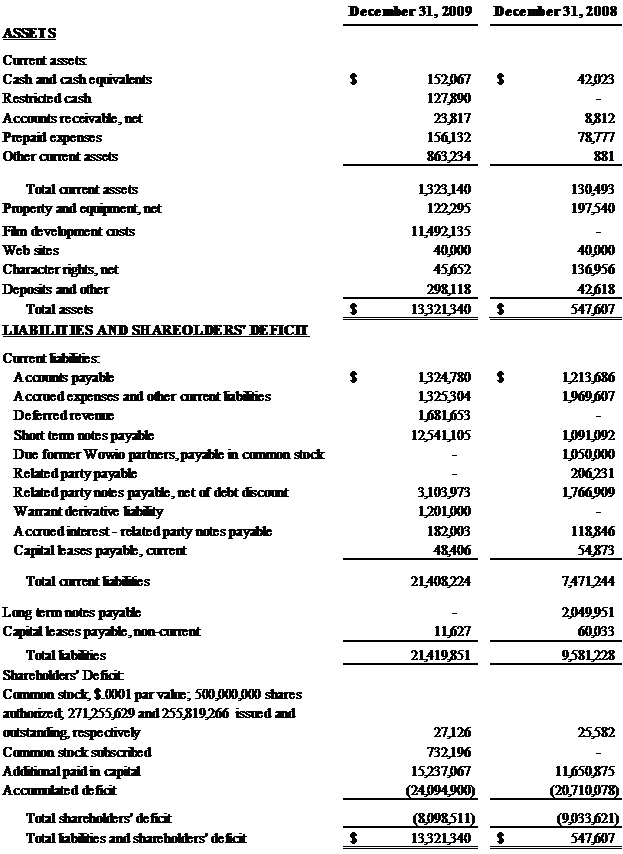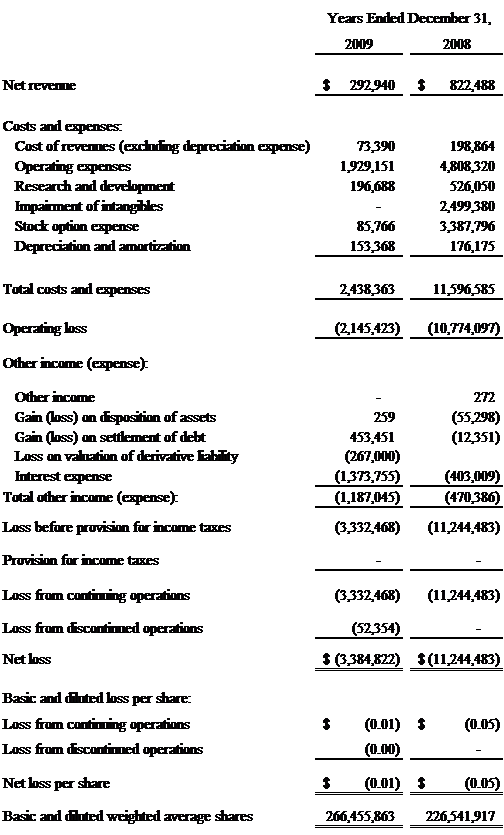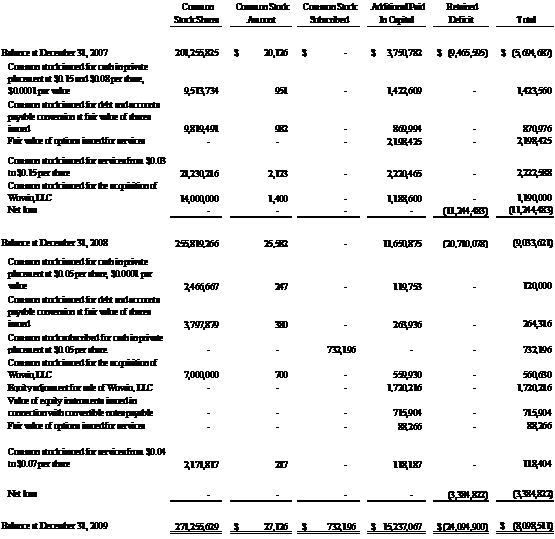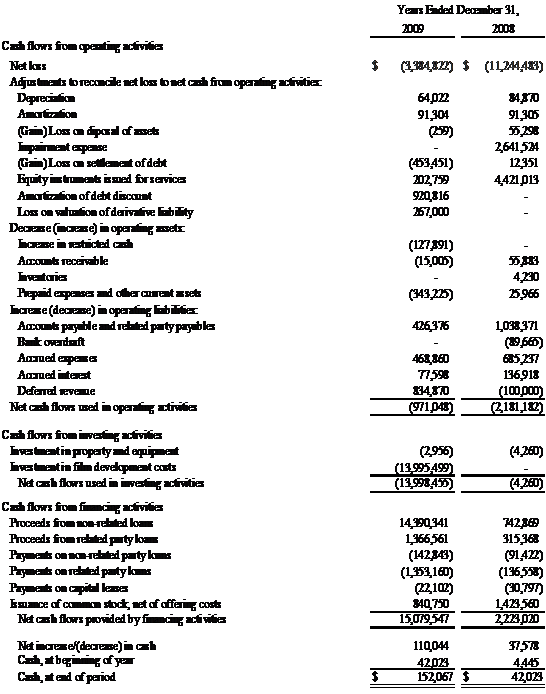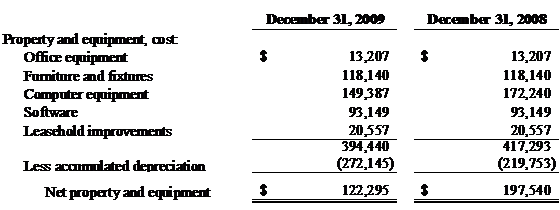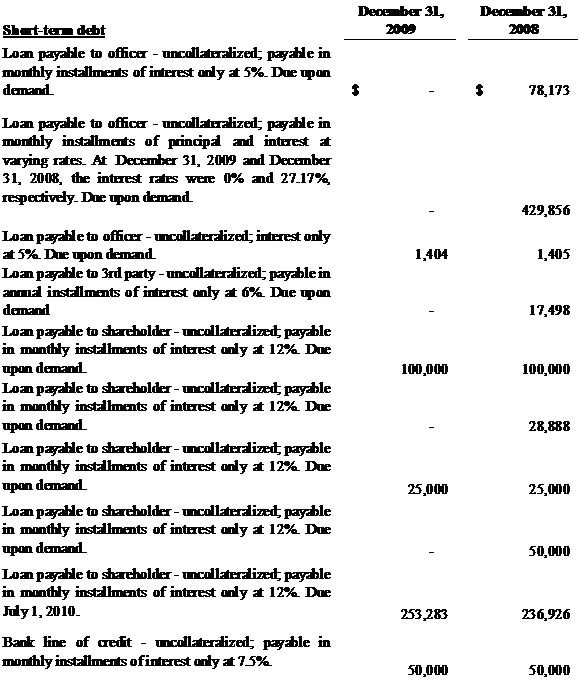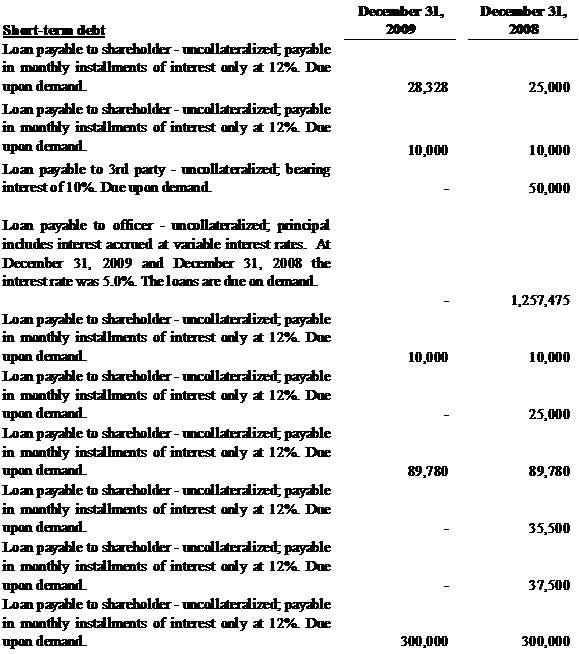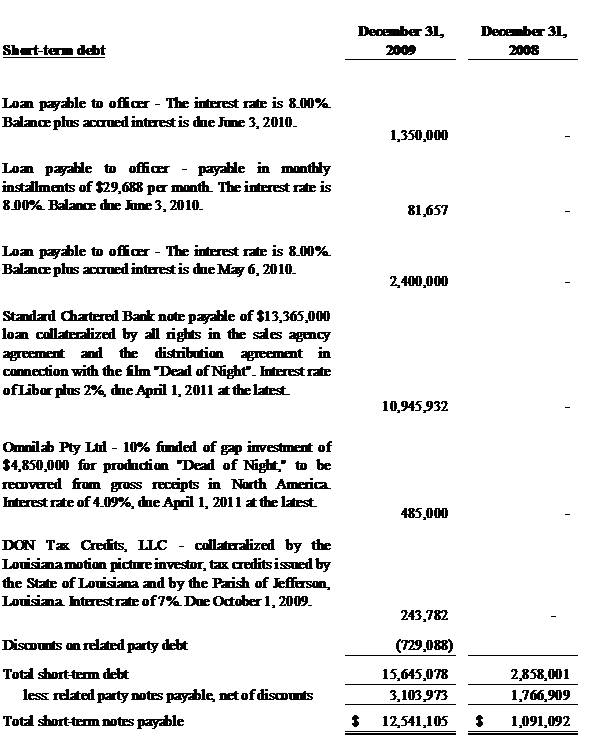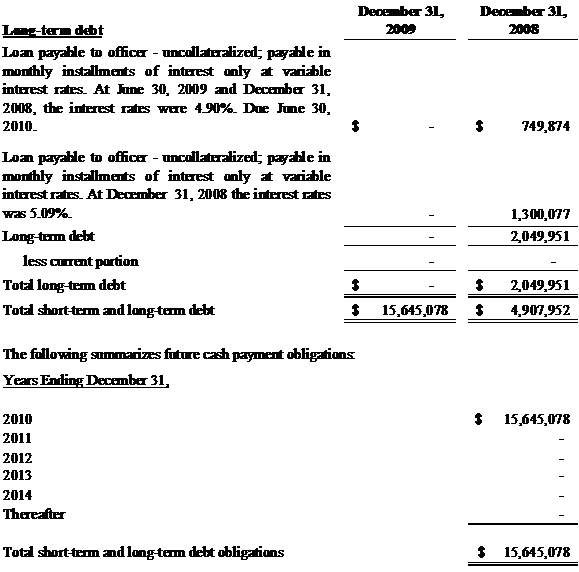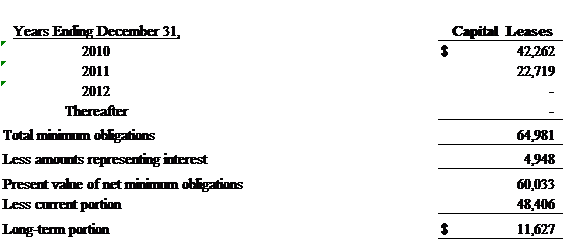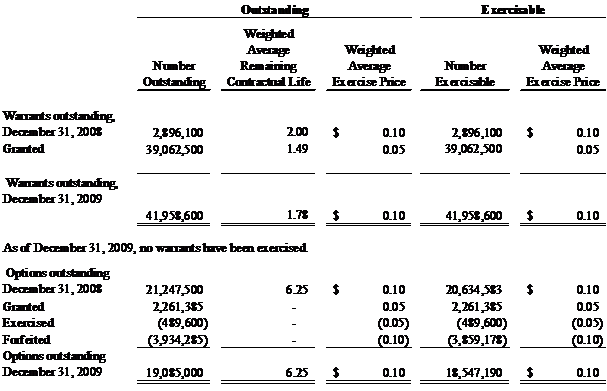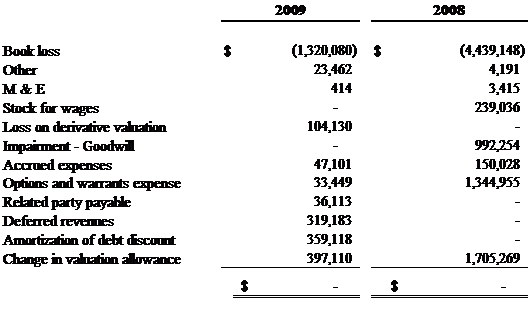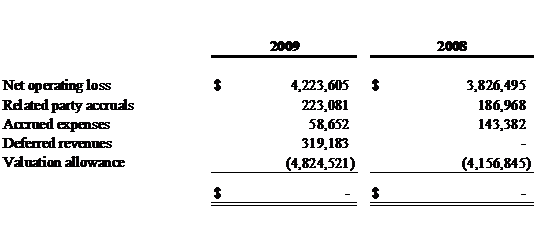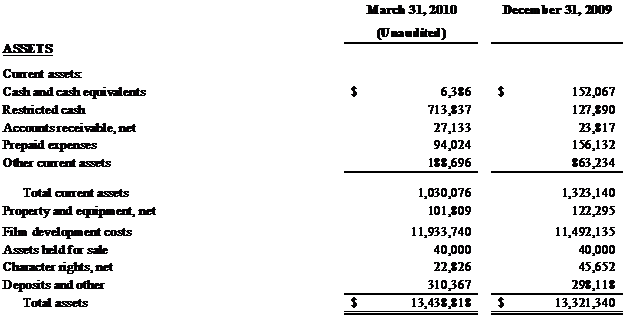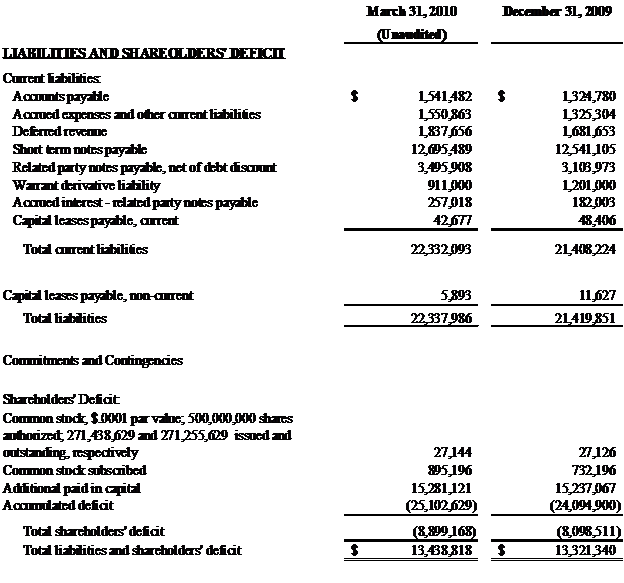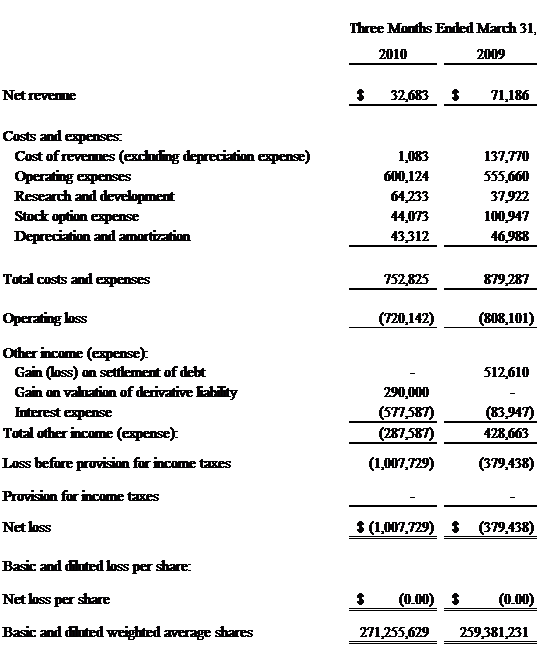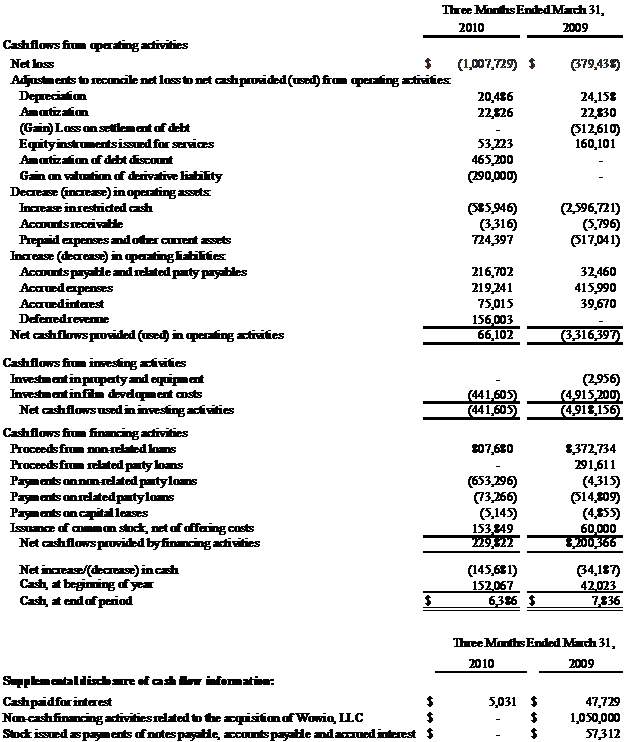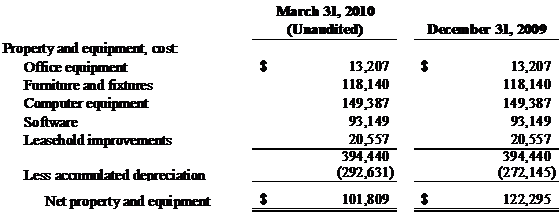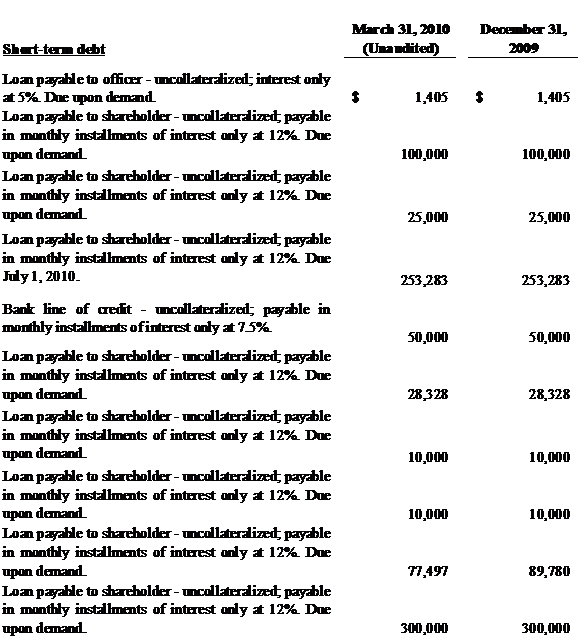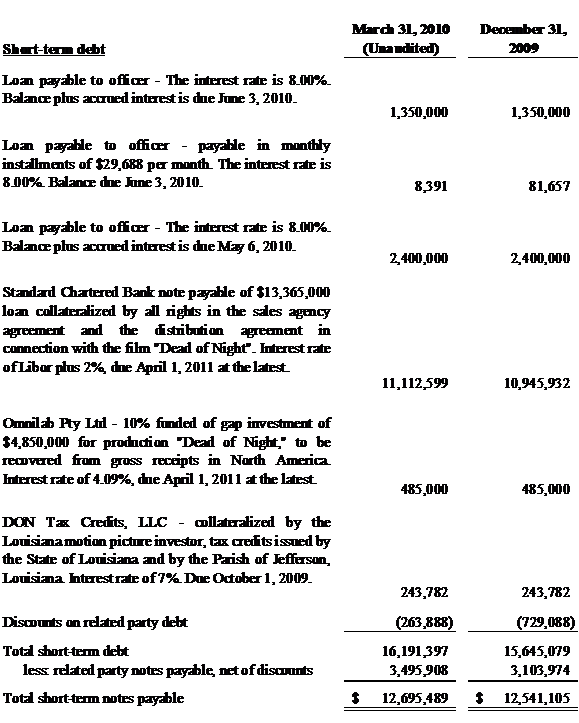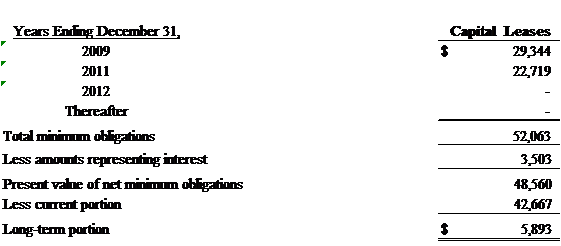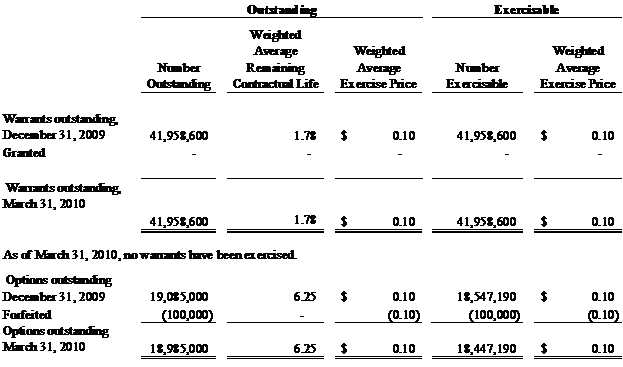License agreements typically include reversion rights which allow the Company to repurchase property rights which have not been used by the studio (the buyer) in production within a specified period of time as defined in the purchase agreement. The cost to repurchase the rights is generally based on the costs incurred by the studio to further develop the characters and story lines.
Use of estimates - The preparation of financial statements in conformity with accounting principles generally accepted in the United States requires management to make estimates and assumptions that affect the reported amounts of assets and liabilities and disclosure of contingent assets and liabilities at the date of financial statements, and the reported amounts of revenues and expenses during the reporting periods. Actual results could differ from those estimates.
Cash and cash equivalents – The Company considers all highly liquid investment securities with an original maturity date of three months or less to be cash equivalents.
Concentrations of risk - Financial instruments that potentially subject the Company to concentrations of credit risk consist primarily of uninsured cash balances. The Company maintains its cash balances with what management believes to be a high credit quality financial institution. At times, balances within the Company’s cash accounts may exceed the Federal Deposit Insurance Corporation (FDIC) limit of $250,000.
During the years ended December 31, 2009 and 2008, the Company had customer revenues representing a concentration of the Company’s total revenues. In 2009 three customers represented approximately 67% of total revenues. In 2008, three customers represented approximately 71% of total revenues.
Derivative Instruments –Platinum Studios entered into a Credit Agreement on May 6, 2009, with Scott Rosenberg inconnection with the issuance of two secured promissory notes and an unsecured promissory note. Two warrants
wereissued to Scott Rosenberg in connection with the issuance of various promissory notes as of May 6, 2009 and June 3,2009.
A description of the notes is as follows:
May 6, 2009 Secured Debt - The May 6, 2009 Secured Debt has an aggregate principal amount of $2,400,000, and is convertible into shares of the Company’s common stock at a conversion price of $0.048. The May 6, 2009 Secured
Debt bears interest at the rate of eight percent per annum. Upon the occurrence of an event of default, the May 6, 2009Secured Debt bears interest at the rate of ten percent per annum. Interest is payable upon the expiration of the
notes onMay 6, 2010. The original principal amount of $2,400,000 is to be repaid upon the expiration of the notes on May 6, 2010. The Company may prepay the notes at any time. The May 6, 2009 Secured Debt has the following
features thatcan be considered to be embedded derivatives: (i) the conversion feature of the notes, (ii) a holder’s right to force aredemption of the Notes upon an event of default, and, (iii) the increased interest rate upon an event of
default. Inconnection with this debt the Company also issued warrants to purchase 25,000,000 shares of the Company’s commonstock for $0.048 per share.
June 3, 2009 Secured Debt - The June 3, 2009 Secured Debt has an aggregate principal amount of $1,350,000, and isconvertible into shares of the Company’s common stock at a conversion price of $0.038. The June 3, 2009 Secured
Debt bears interest at the rate of eight percent per annum. Upon the occurrence of an event of default, the June 3, 2009 Secured Debt bears interest at the rate of ten percent per annum. Interest is payable upon the expiration of the notes on June 3, 2010. The original principal amount of $1,350,000 is to be repaid upon the expiration of the notes on June 3, 2010. The Company may prepay the notes at any time. The June 3, 2009 Secured Debt has the following features that can be considered to be embeddedderivatives: (i) the conversion feature of the notes, (ii) a holder’s right to force a redemption of the Notes upon an event of default, and, (iii) the increased interest rate upon an event of default. In connection with this debt the Company also issued warrants to purchase 14,062,500 shares of the Company’s common stock for $0.038 per share.
June 3, 2009 Unsecured Debt - The June 3, 2009 Unsecured Debt has an aggregate principal amount of $544,826, andis convertible into shares of the Company’s common stock at a conversion price of $0.048. The June 3, 2009
Unsecured Debt bears interest at the rate of eight percent per annum. Upon the occurrence of an event of default, theJune 3, 2009 Unsecured Debt bears interest at the rate of ten percent per annum. The Company is required to make
payments of $29,687.50 per month. The monthly payments are to be applied first to interest and second to principal.The remaining principal amount is to be repaid upon the expiration of the note on June 3, 2010. The Company may
prepay the note at any time. The June 3, 2009 Unsecured Debt has the following features that can be considered to beembedded derivatives: (i) the conversion feature of the notes, (ii) a holder’s right to force a redemption of the
Notes


